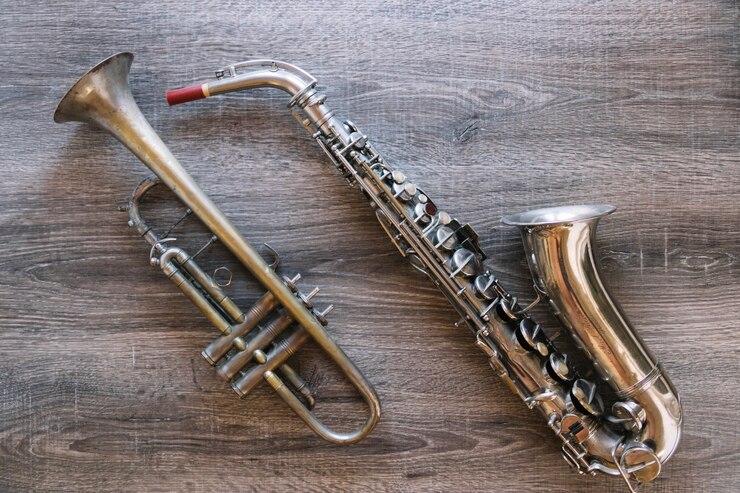Flute vs Clarinet – Which Instrument Reigns Supreme?
Welcome to the ultimate showdown between two iconic wind instruments – the Flute vs Clarinet If you’re torn between these beautiful instruments or simply looking to dive into the world of woodwind music, this blog post is your go-to guide. Whether you’re enchanted by the graceful melodies of the flute or drawn to the rich tones of the clarinet, we’ll explore their key differences, recommend options for beginners, and help you decide which instrument reigns supreme in your heart. Let’s embark on this musical journey together!
What is a Clarinet?
The clarinet, a member of the woodwind family, is known for its versatile range and distinctive tone. With a cylindrical bore and a single reed mouthpiece, this instrument produces warm and vibrant sounds that can soar through orchestras or blend seamlessly in jazz ensembles.
Featuring keys and fingerings to create different pitches, the clarinet comes in various sizes such as Bb, A, Eb, and bass clarinet. From classical compositions to lively klezmer tunes, the clarinet’s flexibility allows musicians to explore an array of musical genres with ease.
Dating back to the early 18th century, the clarinet has evolved over time with improvements in design and craftsmanship. Today, it remains a popular choice among musicians of all levels seeking to express themselves through its melodic capabilities.
What is a Flute?
The flute, a sleek and elegant instrument with a rich history dating back centuries, is a member of the woodwind family. Crafted from metal or wood, it produces its enchanting sound when air is blown across the mouthpiece’s edge. Known for its versatility in both classical and modern music genres, the flute can evoke emotions ranging from soothing tranquility to lively exuberance.
One distinctive feature of the flute is its design as an open tube with finger holes along its body. This allows players to change pitch by covering or uncovering these holes while controlling airflow through breath control. The mesmerizing melodies produced by this instrument have made it a favorite among musicians and listeners alike.
Whether played solo or as part of an ensemble, the flute’s ethereal tones add depth and beauty to any musical piece. Its ability to seamlessly blend with other instruments makes it a versatile choice for musicians across various genres worldwide.
Key Differences Between Flute vs Clarinet
When comparing the clarinet and flute, one key difference lies in their construction. The clarinet is a single-reed woodwind instrument, while the flute is a reedless wind instrument with an open hole system. This variation impacts how sound is produced on each instrument.
Another notable contrast between the two instruments is their playing technique. The clarinet requires using a mouthpiece and reed to produce sound through vibrations, whereas the flute demands blowing air across an embouchure hole to create tones.
In terms of range and pitch flexibility, the flute typically offers a wider tonal spectrum due to its design compared to the clarinet. This allows for more versatility in musical expression when playing different genres or styles.
Additionally, each instrument has its unique sound qualities; the clarinet produces warm and rich tones while the flute emits clear and bright sounds. These distinctive timbres contribute to their individual charm and appeal among musicians worldwide.
What Should You Play?
When it comes to choosing between the flute and clarinet, consider your musical preferences. If you enjoy a versatile instrument that can play melodies and harmonies, the flute might be your best bet. Its bright sound is perfect for classical music or even jazz improvisation.
On the other hand, if you prefer a rich tone with a wide range of dynamics, the clarinet could be the one for you. It’s often featured in orchestras and bands for its warm sound that can blend well with other instruments.
Think about which instrument resonates with you more on a personal level. Do you gravitate towards the elegant lines of the flute or are you drawn to the sophisticated curves of the clarinet?
Both instruments have their unique charms and challenges. Whichever one you choose, remember that dedication and practice will always be key to mastering any musical instrument.
5 Clarinet Recommendations for Beginners
If you’re a beginner looking to start your musical journey with the clarinet, here are five recommendations that could set you on the right path.
The Jean Paul USA CL-300 Clarinet is an affordable option known for its easy playability and quality sound production. It’s a popular choice for beginners due to its durability and reliable performance.
For those seeking a versatile instrument, the Yamaha YCL-255 Clarinet is highly recommended. This model offers excellent intonation and tone clarity, making it ideal for students aiming to develop their skills quickly.
The Buffet Crampon E11 Bb Clarinet is favored by many music educators for its professional features at an intermediate price point. Its warm sound and responsive keys make it a top pick for advancing students.
Another great option is the Mendini MCT-E+SD+PB Black B Flat Clarinet. This budget-friendly choice includes everything a beginner needs to get started, from reeds to cleaning accessories.
The Selmer CL211 Intermediate Bb Clarinet appeals to players looking for exceptional craftsmanship and superior sound quality. It’s a step up from basic models without breaking the bank, making it perfect for dedicated learners.
5 Flute Recommendations for Beginners
When starting your musical journey with the flute, it’s essential to have a reliable instrument that suits your skill level. Here are five top recommendations for beginners:
1. Yamaha YFL-222 – Known for its durability and clear tone, this flute is perfect for beginners looking for quality at an affordable price.
2. Gemeinhardt 2SP – A popular choice among new flutists, this model offers a comfortable playability and excellent sound projection.
3. Pearl PF500 – With a sleek design and easy-to-use keys, this flute is ideal for those just starting out in their musical exploration.
4. Armstrong 104 – This trusted brand provides beginners with a solid instrument that will help them develop their skills with ease.
5. Jupiter JFL-700EC – Offering great intonation and response, this flute is an excellent option for those embarking on their music learning journey.
Choosing the right flute can make all the difference in your progress as a musician!
Flute VS Clarinet Summary
When it comes to the flute vs clarinet debate, both instruments have their unique qualities and appeal to different players. The clarinet, with its rich and warm tone, is often featured in classical music and jazz ensembles. On the other hand, the flute’s bright and airy sound shines in orchestras and chamber music settings.
One key difference between the two instruments is their playing technique. While the clarinet requires a single-reed mouthpiece and a complex fingering system, the flute relies on blowing air across an open hole to produce sound. This distinction can influence which instrument may be more suitable for different individuals based on their preferences and physical abilities.
Whether you choose the flute or clarinet as your musical companion will depend on your personal taste, style of music you enjoy playing, and comfort level with each instrument’s technical requirements. Both offer rewarding experiences that can enrich your musical journey in unique ways.
Conclusion
In the ultimate showdown between flute and clarinet, both instruments have their unique charm and appeal. While the clarinet offers a rich and warm tone with versatile playing styles, the flute captivates with its ethereal sound and agility.
The choice between the two comes down to personal preference, musical goals, and playing style. Whether you choose to blow into a flute or press keys on a clarinet, both instruments offer endless opportunities for musical expression and creativity.
So, whether you decide to embark on the melodious journey of mastering the clarinet or immerse yourself in the graceful melodies of the flute, remember that music is about passion, dedication, and above all – enjoyment. Embrace your instrument of choice wholeheartedly and let your musical talents soar!







